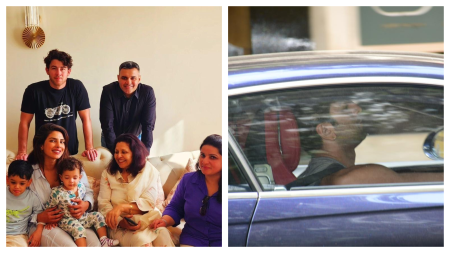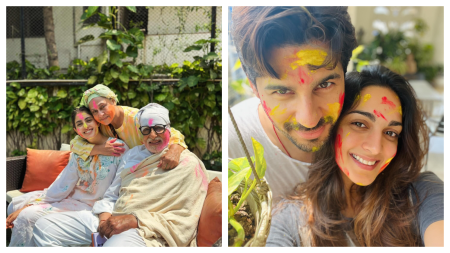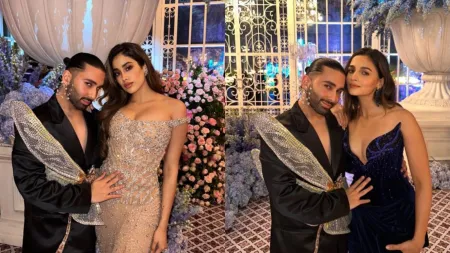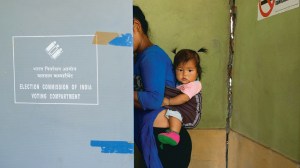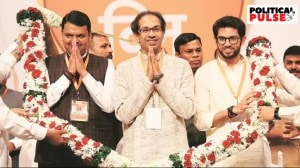- India
- International
I hated MGR’s politics but loved his cinema
Shobasakthi on his yearning to return to Sri Lanka, his political allegiances and why violence solves nothing.
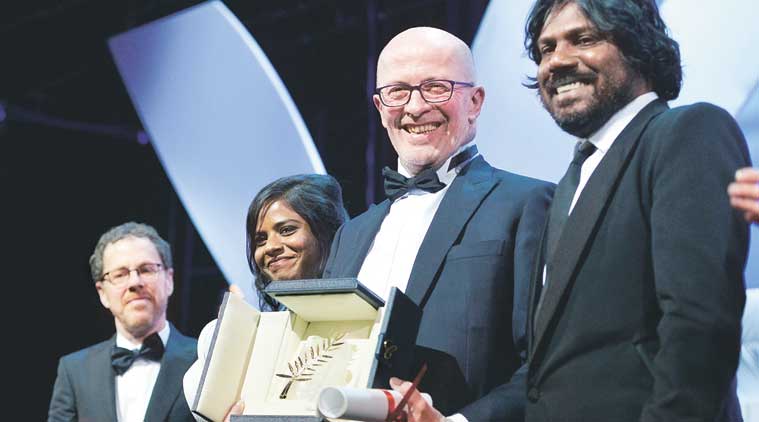 Shobasakthi: When I joined the LTTE in 1983, I was 16. I would take part in street dramas, which were mainly for propaganda.
Shobasakthi: When I joined the LTTE in 1983, I was 16. I would take part in street dramas, which were mainly for propaganda.
When Dheepan was announced as the winner of the coveted Palm D’Or at this year’s Cannes Film festival, it was its unlikely lead actor Jesuthasan Antonythasan, 47, who stole the limelight. Known in literary circles by his pen name Shobasakthi, he has written several short stories, political essays, and two novels in Tamil, the most recent being a collection of translated short stories, The MGR Murder Trial. A former LTTE child soldier, Shobasakthi’s own career graph bears close resemblance to the film’s lead character’s journey. Over a telephonic interview from Paris, Shobasakthi talks of his yearning to return to Sri Lanka, his political allegiances and why violence solves nothing. Excerpts:
How did you bag a role in this project? What was it like working with Jacques Audiard?
The film’s casting director was holding auditions across Canada, the UK and France, and someone informed him about me. I met the director and I auditioned for a scene in September last year and was chosen for the part. We shot from October in France, Tamil Nadu and London. I have always been drawn to the creative arts and wanted to act. This film was special because Dheepan and I have 50 per cent elements in common — I came to France with a fake passport and so on. But the characters and their outcomes are different. Jacques also wrote the screenplay for the film in French and I translated them into Tamil since all the dialogues are in Tamil. I am not very fluent in French. Jacques did not know much about my past life when I met him. He just knew that I write occasionally in Tamil.
Were you always interested in writing and storytelling? How did you get interested in films?
When I was 12 or 13, I started participating in dramas in my village of Allaipiddy, one of the islands in Jaffna. I was fond of the stage and started writing dramas dealing with the caste system and social stigmas. When I joined the LTTE in 1983, I was 16. I would take part in street dramas, which were mainly for propaganda. I even wrote poems for propaganda as I did not have any understanding or knowledge of modern literature. After reaching France, I started reading Russian writers like (Leo) Tolstoy, Maxim Gorky and Michel Foucault. I started writing in 1995 and my first short story called Rat Hunt (included in The MGR Murder Trial short story collection) was published in Tamil in 1997. I have published more than 15 stories since. Most of them have dealt with the civil war in Sri Lanka. Though I witnessed it only for four years, I have always maintained my links with Sri Lanka and written about that period. I have always been a big fan of Tamil cinema, and especially MG Ramachandran. I hated MGR’s politics, but loved his cinema. Of the 136 films he has done, I have seen 130 of them. In his films, he always talks against the bourgeoisie, supports the working class, tries Leftist ideology, but in his politics, he was 100 per cent the opposite. I like cinema a lot. Even my pen name was inspired by Tamil actor Shobha, who committed suicide in 1980.
How did you get involved with the LTTE?
I was young and I did not have much of an opinion about anything. From 1983 onwards, the Sinhalese government was ruthless with the Tamil population in the country. The local police burned down the Jaffna public library that year. Tensions rose when, at the Welikada prison in Colombo, about 53 Tamil political prisoners were executed in custody on July 27, 1983, with the knowledge of the Sinhalese government. I have chronicled some of those events from that incident in my novel Traitor. There were mass protests in Jaffna against this and I slowly started believing in the cause of the Tamil Eelam. At that time, I thought the (then) Indian Prime Minister Indira Gandhi was supporting the cause and even the Tamil Nadu chief minister MG Ramachandran was supportive of a separate Tamil state, so the battle would be over in three years. But it went on for much longer. When I look back now, it was a mistake. We cannot achieve anything with violence.
What circumstances led you to exit from the LTTE?
When I joined the LTTE, it was a small guerilla movement that followed a socialist ideology and wanted to help poor Tamils. I was very naïve, so I believed everything I heard. But after 1985-86, LTTE turned into a fascist and violent movement and Mr Prabhakaran became one big warlord. I have always been a socialist and leftist and I did not align with their ideology anymore, so I left. I met Mr Prabhakaran only once and never after that.

Why did you flee the country and how did you come to Europe?
In the mid-’80s, the war with the IPKF and the LTTE was hotting up in my area in Jaffna. There were civilian casualties committed by the IPKF in Jaffna and 30 people close to me were killed. I wanted to get out before things became worse. As a former child militant, life was hell. I went to Colombo and CID officers arrested and imprisoned me for several months. After my release in 1988, I left the country and went to Hong Kong. From there I went to Thailand, worked for a Thai mafia outfit and sought political asylum as a refugee in the country. But the only problem was that I could not get a job in Thailand, so I went to Paris on a fake passport in 1993. In Paris, I felt I had a greater chance as there was a 100,000-strong Tamilian community, who had fled from the north and north-east Sri Lanka.
How has life been for you after moving to France?
I felt safe when I came to Paris. I faced problems because of my skin colour, language, eating habits — it was very difficult and still is — but it was better than living in Sri Lanka. Within a month, I found a job as a newspaper boy. Then I worked as a cook, a dish washer, and finally as a helper in the supermarket. I hated doing that work as I was lazy. I started writing because I wanted to use my energy for creative purposes. Currently, I am living with my sister, a writer, and her two boys. My past has followed me here too. After I started getting published, former LTTE members heard about my work and I have survived three attacks on my life. I have never been able to return to Sri Lanka, as I do not have a visa and a passport. I am still living as a refugee.
Have you been offered any projects after Dheepan?
My next Tamil novel, Box will be releasing in Chennai soon. It will be about the post-Civil War situation in Sri Lanka. The name comes from the Sri Lankan military strategy of surrounding a village before entering it, so people cannot escape.
I have not been offered any more acting projects. But it would always be nice to act in a Tamil film again. I have written a story for a Canadian-Tamil film. It is about life in exile in Toronto, Canada, as a Sri Lankan Tamil. We start shooting in December. If I get bored, I can always return to my job as a supermarket helper. In the last six months, I have earned enough money from the film, so I didn’t need to work at the supermarket.
Click for more updates and latest Bollywood news along with Entertainment updates. Also get latest news and top headlines from India and around the world at The Indian Express.
Photos
Apr 20: Latest News
- 01
- 02
- 03
- 04
- 05



















